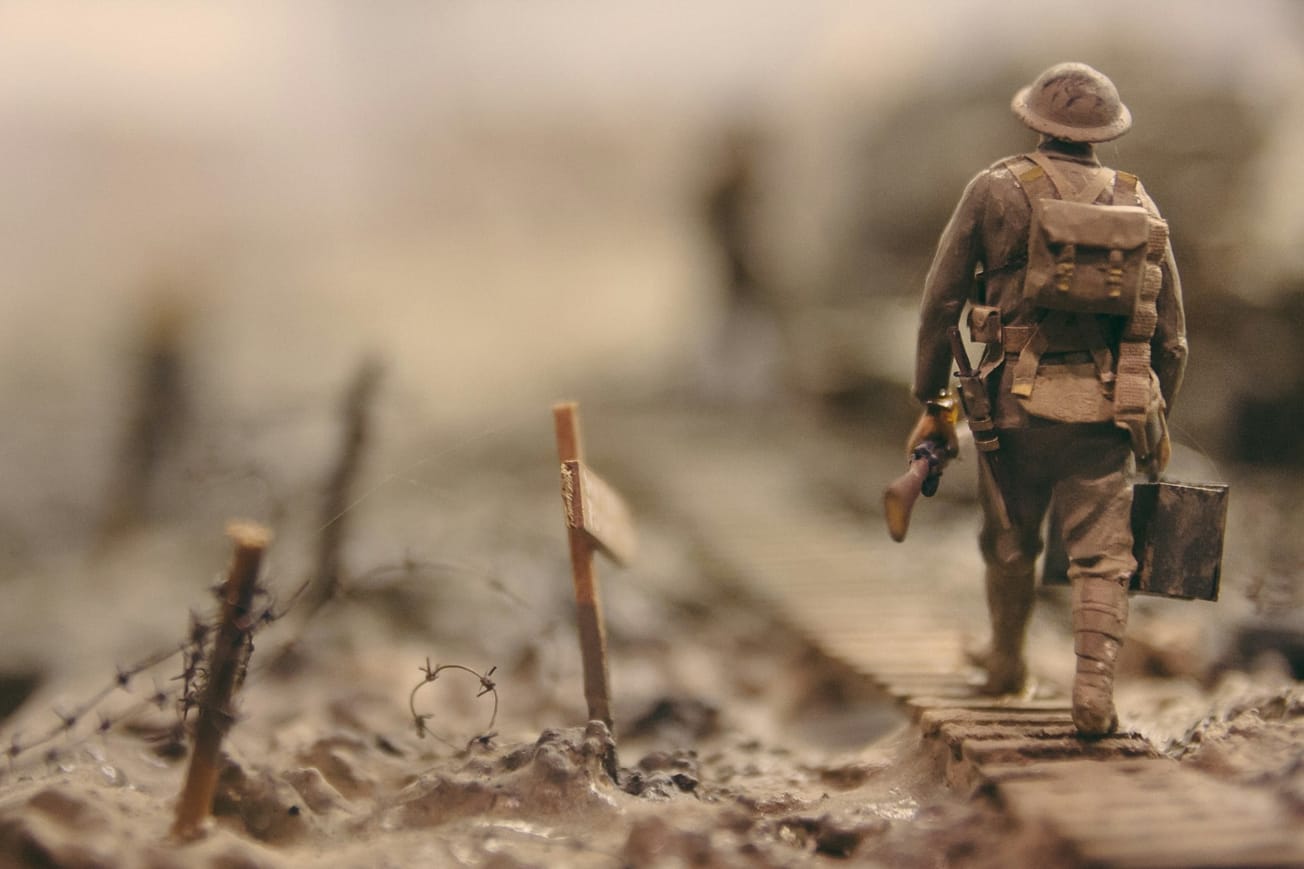By Daniel Rose, First Year, History
After 80 years of complacency in Britain, the notion of a conflict requiring the conscription of a generation belongs to a bygone era, unthinkable today. Yet, recent comments from UK General Sir Patrick Sanders, calling for the implementation of a ‘citizen’s army’, have propelled the idea of twenty-first century conscription into the headlines. Although this appears necessary in the face of growing tensions, conscripting Generation Z to fight for their country is unlikely to prove successful and here's why.
As a general military rule, relying on strategies of previous conflicts is rarely a good idea. Conscription, a practice that was essential in Britain’s efforts in the First and Second World Wars cannot be effectively reproduced in today’s Britain, with a recent poll finding that only 14% of Brits aged 18-24 would willingly fight if conscripted. Conscription in the two World Wars was enforced on people who had, naturally, grown up in the first half of the twentieth century. Born and raised in pre-war communities, limited to pre-war technology, holding pre-war conceptions of duty, sacrifice, and death for one’s country, conscription was enforced onto a youth fundamentally different to today’s.
A prevalent narrative spread by the generationally resentful is that Generation Z is simply too weak for war. The ‘snowflake’ generation, with their microaggressions, pronouns and sensitivity, form a generation ‘Too Woke to Serve’, as TalkTV puts it. This is the story that the British army themselves appeared to believe, launching a series of campaigns targeting this mentality: ‘snowflakes, your army needs you and your compassion’, a 2019 spin of the First World War Kitchener poster reads. Alternatively, you may be led to believe that new forms of entertainment are to blame, with TimesRadio suggesting that it may be because ‘they’re all used to playing WarZone’.The decline of a multi-century core sense of purpose, framed as a result of video games.
#UK Army for its 2019 recruitment campaign, "Your Army Needs You," the army is seeking recruits from the "snowflake generation."#England
— Mete Sohtaoğlu (@metesohtaoglu) January 4, 2019
📸 pic.twitter.com/v2SQMY5iKf
Regardless of which side of the culture war you fall on, no amount of ‘wokeness’ or video game playing can render an entire generation ineffective at serving their country.
Rather than the culprit lying in an aura of sensitivity, Generation Z lacks patriotism, a sense of duty and, by extension, conscription, has always relied on: community. Growing up disconnected from each other, spending childhoods on the internet and entering a globalised world in which moving around the country for job opportunities has become the norm, our identities have been built on fickle foundations. A recent study showed that 43% of Brits feel disconnected from their communities with 18-24 year olds feeling significantly more disconnected than those of older generations. Past generations grew up in distinct communities of towns and villages, spending the majority, if not all their lives, living and working in these areas. Their identity was formed by where they came from. To them, serving their country was an extension of serving and defending their communities. If their friends, whom they had grown up with, went to war, so did they. Compelled by community camaraderie and a desire to be part of the group they viewed themselves as an extension of, the idea of backing away from service was inconceivable. The shame placed upon their reputation in the eyes of their community for failing to join their fellow conscripts would be far worse than any fear of danger that came with going to war.
Generation Z has no substitute for this. Most of us, including myself, speak to our neighbours only a handful of times per year, and beyond the families next door, have little to no knowledge of who lives on our roads and in our ‘communities’. We have no sense of belonging to any kind of residential area and are by consequence, driven by little other than service to ourselves. This is not to say we are selfish – many of us are more socially conscious and driven to effect good in the world than our generational predecessors – but the kind of community-driven euphoria in which excitement to go off and serve with those you grew up with, with names like the ‘North Somerset Yeomanry’, is simply not possible in today’s UK. If I were to serve in the ‘Oxfordshire Light Infantry’ – the regiment of the area I grew up in, I wouldn’t know a single other person there. I would feel no loyalty to the regiment and - past the basic instinct to survive - would feel no desire to serve with them.
To add to this, the enhanced and more realistic sense of death we have gained through the spread of the internet where news reports bombard us with graphic clips of the latest war-related catastrophes - videos of terrified soldiers being killed by remotely controlled drone strikes - it is not difficult to see why the fantasy of a romantic death in battle is scarcely believed by today’s prospective soldiers. With the reality of war conveyed to us not through word of mouth, legends or propagandistic spins, in which we can witness for ourselves the undignified deaths of the participants of conflict, the narrative from which so much conscription drew – that war is an adventure – is not well received by Generation Z.
Most of Generation Z, devoid of community pride and unwilling to entertain a romantic notion of war, would simply choose to conscientiously object to serving; something that was already an issue in the First World War, but, without the same community drive to serve, would likely spiral into a mass boycott of conscription, rendering the army’s proposed measures ineffective. For conscription to work it must be imposed on a population that feels some level of attachment to the community they’re being forced to risk their life for. This is absent among today’s youth.
Featured image: Stijn Swinnen // Unsplash









